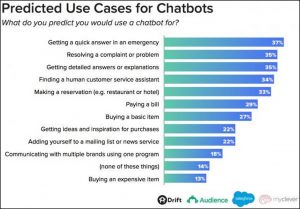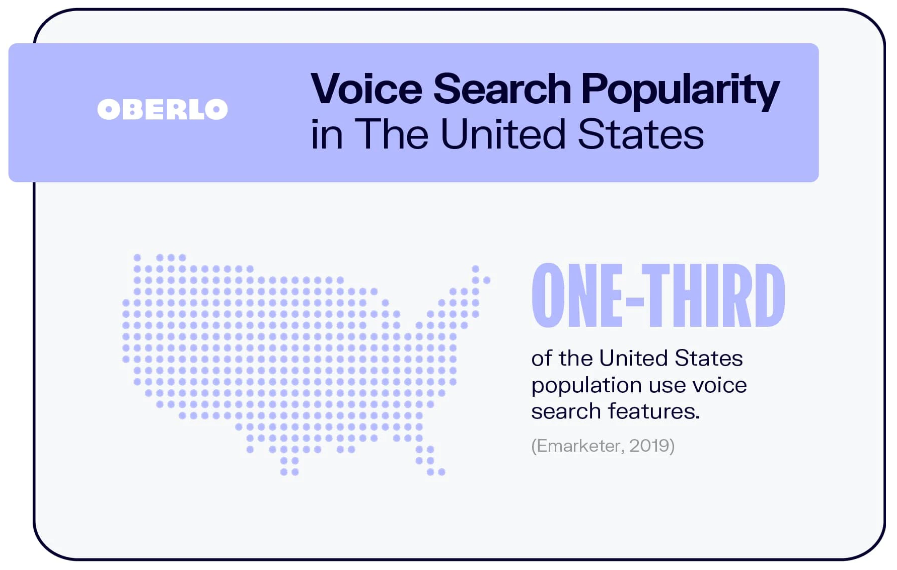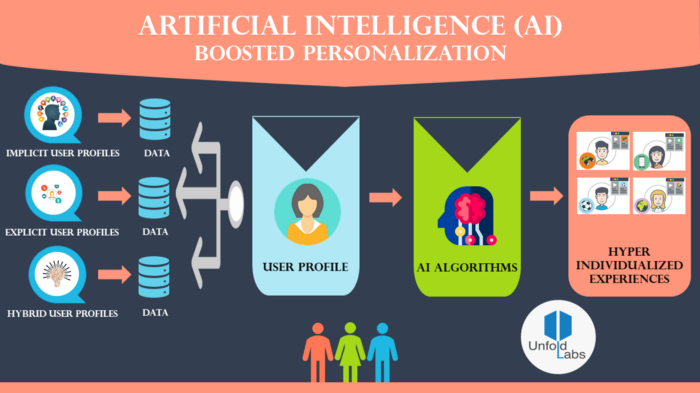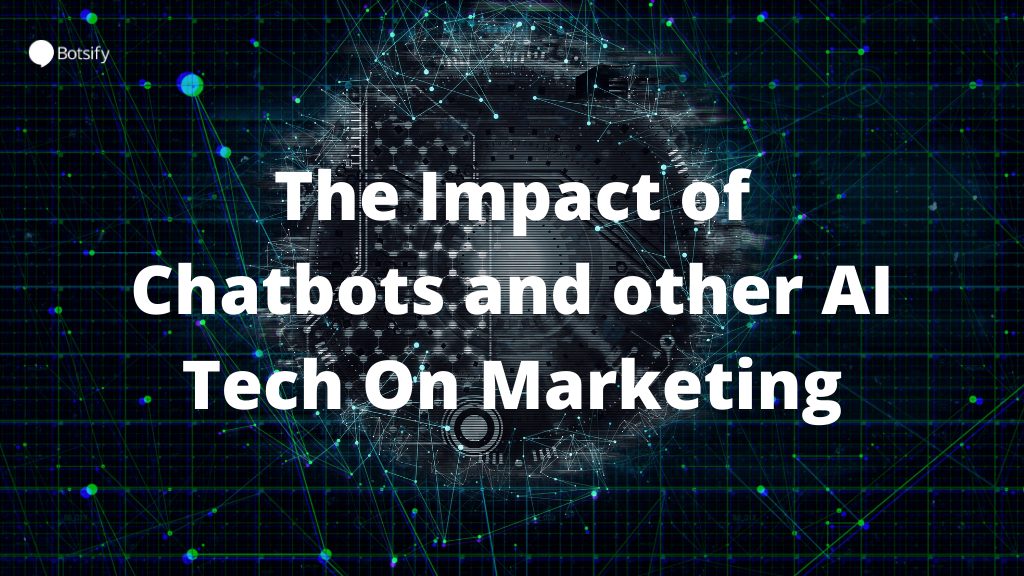Artificial intelligence is already a big part of most of our lives, even if we don’t realize it. AI programs control what we see on social media feeds, what ads pop up when we visit websites, listen to podcasts, and play games. It even works for providing you with suggestions on your favorite streamer for what movie or TV show to watch next. Technology and artificial intelligence will continue to dominate our lives moving forward. This includes marketing. There are several ways in which AI and chatbots will have an impact on every aspect of digital marketing in the years to come.
What is Artificial Intelligence?
Artificial intelligence is when computers are able to perform tasks that mimic what the human mind can do. There are many types of artificial intelligence, but when it comes to marketing, we are concerned with Artificial Superintelligence (ASI). This type of AI is what has brought us chatbots, voice search assistants, and targeted ads, among other things. It essentially can perform tasks that you can do, but it will do them faster. It can mimic reasoning and logic as it interacts with actual humans. Its effect on marketing has already been immense and will continue to be.

Chatbots
While chatbots are a relatively simple form of artificial intelligence, they have become incredibly widespread across the internet. It seems like every website you visit has a chatbot of some kind. They usually pop up on the side and ask you a question such as “how can we help you today?” Your responses will then trigger it to asking further questions, or providing answers. With experience, we know that these are not humans, however, we do respond to them as if they were.
For the most part up until now, they have been used for customer service. They can perform simple functions and use keywords in clients’ questions to provide appropriate answers. However, they are also valuable when it comes to sales and marketing. For one, they can make the sales process simple and seamless. A customer can have a question or two answered, and then be provided a link to move right into buying.
Chatbots on social media pages can drive engagement with customers and provide fast responses, which builds trust and connection with your brand. They can also be a source for data from your prospects and customers through analyzing behavior. So while your B2B marketing strategy might serve to get people to your website, a chatbot can help them convert.
As they evolve, chatbots can become even more powerful. They gather data about a website visitor and tailor their questions and responses to what might interest that visitor. The most advanced are even able to detect certain words and subtleties in clients’ responses. This allows them to “understand” that there’s an issue or a concern to deal with. It can then craft responses that mimic human behavior, such as by apologizing. Not only that, but it will also respond using strategies that turn concerns into sales. In effect, an advanced chatbot can act as both a customer service agent and as part of your sales team. The use of voice AI technology in chatbot systems will enable businesses to provide even better customer service and be more targeted with their sales efforts. Utilising AI in this way will provide much better opportunities for businesses across the board.
Predictive Marketing
There is a lot of data floating out there about consumer behavior. It comes through social media activities, web searches, and purchasing habits. With all of this information, predictive marketing is the next logical step. Predictive marketing is the use of AI to determine what the best strategies are to take when it comes to your marketing. This is something that marketers have always done. However, in the past it required close analysis of customer behavior, including buying habits and spending, amounts to get a picture of the target audience. Only after all of this work had been completed could putting the strategy in place be initiated.
That work could take weeks or months and be still affected by human error and biases. With AI, it can be done in seconds, and you are ready to engage your customers and prospects in meaningful ways. With the help of AI, you can understand the timing of your customers’ purchasing, how much they spend, and why they made that purchase in the first place. Marketing can be tailored to this information, which means that your budgeting will be efficient, and your engagement can be much more effective.
The Rise of Voice Search
Perhaps the single biggest change in customer behavior that is sending shockwaves through digital marketing is voice search. It has boomed in recent years, with approximately 40% of people in the USA using it on a daily basis, and that number is only expected to grow. Why is this happening? For starters, more people than ever are using their phones to access the internet.

This means that instead of typing out search terms into a browser, they are asking Siri or Bixby a question and waiting for a response. Secondly, home assistants have become more popular. People talking to “Alexa” and asking about movie times and recipes, and also setting alarms and timers for the lights in their homes.
People already treat these digital assistants like people. They call them by name, and these bots can even respond with jokes or banter. As they get more sophisticated, those jokes can be tailored to the audience. Digital assistants can even detect the voice of their primary user.
Why is this so important for digital marketers? When someone uses voice search, they use different search terms than if they were typing. Searchers no longer type in as few words as possible to search, such as “hardware store New York.” Instead, they will say a complete sentence, such as “What is the nearest hardware store to me?” If you are planning on content marketing, then your keywords must reflect this change.
Your content must be geared towards answering questions and solving problems, and not only towards pleasing Google’s keywords per word ratio. This is one of the basic content marketing mistakes you can make. In a sense, these AI assistants are making internet use and searching more personable and human-like.
Customization
This is all leading towards increased customization and personalization when it comes to campaigns, ads, and even social media posts. Marketers have always tried to do this, but it is now much easier with the data collection and analysis abilities of AI technology.
In the past, target groups for marketing campaigns had to be broad. You could narrow things down, but only so far without spending too much time and effort parsing subtle differences. Now, you can drill down to almost every difference, including location. In the past, your target audience segments may have had several thousand people, which was useful but too broad. Today, you can target a dozen people in a single building or even a room.
This makes the marketing process incredibly personal for the customer. You can cater to their needs as they are at the very moment that they have them. Are there several prospects at a tech conference in Phoenix? Target some social media ads to people in that zip code about your product after your CEO has done a speech or given a workshop. Your audience will already be interested in your CEO and what he had to say. AI has now made it simple for them to make a purchase or to show interest in your brand.

This technology will also allow us to personalize everything. If you are sending out email newsletters, they can be changed, on a person-to-person basis. You can display images and text that are specifically designed for the viewer who receives them. This includes the email subject line, which will improve open rates.
Pricing
Sports teams, and subsequently ticket resellers, understood a long time ago the value of dynamic pricing. This is pricing that is flexible and will change based on demand, anticipated use, and the demographic of the customer. A century ago, sports teams offered cheap seats for certain people with worse views than the more expensive ones upfront. That has evolved to now charging more for games that are anticipated to be in high demand. Ticket resellers, or “scalpers” are more in the moment. They can raise their prices at a moment’s notice if a game is sold out or if interest is increased for any reason.
These concepts can now apply to anything. With AI, it can anticipate changes in the market, and adjust prices accordingly without the sales team having to lift a finger. Amazon and Uber are the perfect examples of this. Prices will go up and down based on demand within that very minute or second. The AI can sense purchasing patterns and traffic to the site, and set prices accordingly. Even if a product is featured in a news piece, or if there is a mention on social media about it, the price will increase on Amazon almost immediately. It is not just supply and demand, but more complex, and a human could not analyze and adapt nearly as fast as AI.
As human beings, it’s important that we all be ready and fully understands the impact that AI has on our lives. As marketers, we must do the same and put into place strategies that can leverage this technology and help build our brands.

